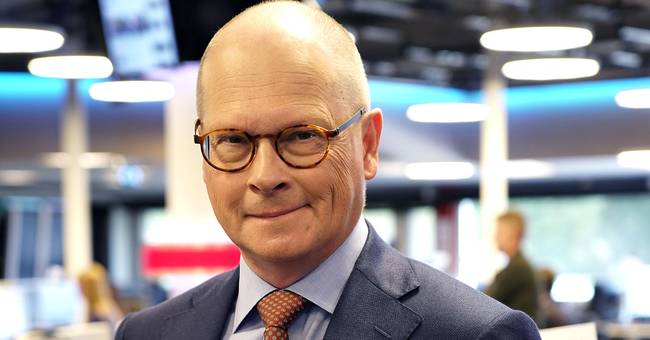This weekend, 400 victorious Sweden Democrats will meet in Karlstad, where the national parliaments, the party's highest decision-making body, will gather.
Here, the budget decision in the Riksdag earlier this week is described as historic and a milestone for the party.
With the budget decision, the Sweden Democrats believe that they have seriously entered the heat of Swedish politics.
The Riksdag has adopted a budget alternative, which the party has been involved in negotiating.
There are not only factual political successes here, such as writings on a sharpened migration policy.
SD has also stopped savings on health insurance and the unemployment insurance fund.
Reasons to be happy
And the political consequences of the budget decision have been great.
In protest, the Green Party has left the government and forced the prime ministerial candidate Magdalena Andersson to a second vote in the Riksdag.
So enough, the Sweden Democrats have reason to be happy today.
In a few years, they have gone from being completely isolated in Swedish politics to a party that not only negotiates budgets with others, but can also win a budget vote.
And that may be on its way to government power after next year's election.
No wonder then that the rooster comb grows on Jimmie Åkesson and his party comrades.
And with the growing rooster comb, the Sweden Democrats are also increasing demands for influence in a future government.
Problems for Kristersson
This could create problems for moderate leader Ulf Kristersson, who hopes to form a new government after the next election.
The demands of the Sweden Democrats can create great concerns for him, given the perceptions that exist about SD in his government documents.
Many of these contradictions have so far been overshadowed, not least because of all the turmoil surrounding first Stefan Löfven's and later Magdalena Andersson's government base.
To begin with, both the Moderates and the Christian Democrats have so far rejected all discussions about SD having ministerial posts in a future government.
The Liberals, who may be part of a government document, have gone even further and say no to a government that cooperates with SD in the budget.
The Christian Democrats' Ebba Busch has also declared that SD can not count on gaining influence in proportion to its size.
The messages from the Sweden Democrats this weekend are the exact opposite.
The requirements are now tightened for SD to sit in a government and have its own ministerial posts.
Should SD end up outside such a government, the demands for political concessions will increase, according to party representatives.
And no one within the party is likely to accept anything other than budget cooperation.
It is not seen at all as an issue here after this week's Riksdag decision.
And of course, the party must also have influence in proportion to the size of the election, Jimmie Åkesson emphasizes.
Difficult negotiations
These can be difficult things to handle in a government negotiation, not least when there are clear contradictions between the parties involved in a number of issues.
These include economic policy and the view of, for example, unemployment insurance and health insurance.
But also that the Sweden Democrats want to go much further than mainly the Christian Democrats but above all the Liberals when it comes to tightening of migration, integration and justice policy.
It can thus be a complicated government formation for Ulf Kristersson if he gets the Speaker's assignment to form a government after the election next year.

